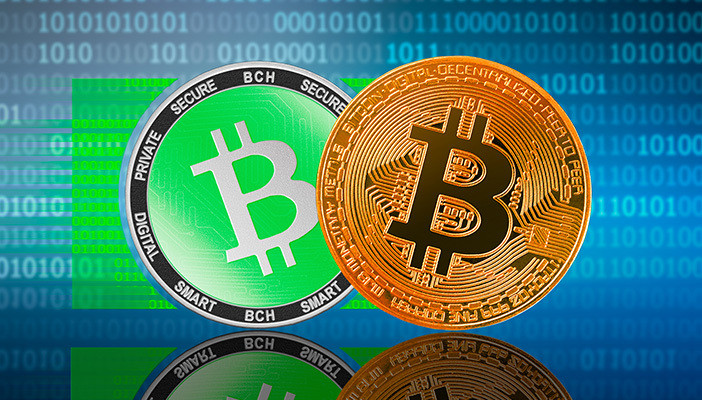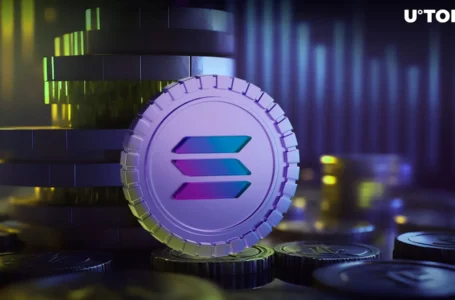
Bitcoin is the most popular cryptocurrency in the world, but it has some problems. The technology makes Bitcoin difficult to scale and as a result, you cannot use BTC for every day transactions such as buying gas or milk.
Offshoots such as Bitcoin Cash have been developed as potential solutions to this problem, but to fully understand the differences between these options, it helps to know a bit about Bitcoin’s history.
Bitcoin
Bitcoin was created in 2009 by an anonymous internet user or group called Satoshi Nakamoto. It is a form of digital currency that doesn’t rely on centralized banks and has seen increasing popularity since the 2008 economic recession.
Miners could be vital to the future of Bitcoin. They perform a crucial function in confirming valid transactions and keeping them secure, while also earning new bitcoins for their efforts — an important source of revenue that makes Bitcoins more valuable without inflating prices too rapidly or making it easy enough to create free coins (which would devalue existing ones). The maximum number will never be reached: there are only 21 million possible units available. Although Bitcoin was meant to be used as digital cash, the volatility of the new cryptocurrency attracted investors while discouraging its use as legal tender.
Scalability Problem
There have been concerns about Bitcoin’s limitations since before the first block was mined. One of those who expressed skepticism from day one is Hal Finney: “The way I understand your proposal, it does not seem to scale to the required size.” The reason is that the network is limited in how many blocks of transaction records can be processed in a given time frame because of the size limitations imposed by Bitcoin itself. New blocks are produced about every 10 minutes, and they’re limited to 1 megabyte in size.
As a result, the Bitcoin network has never managed to process more than eight transactions per second — a paltry figure next to the 1,700 TPS handled by a legacy payment network like Visa. In an effort to solve this problem, developers introduced Segregated Witness — an upgrade that was developed in 2015 and is still in the process of being adopted networkwide.
Bitcoin Cash
When a change to the Bitcoin protocol is proposed, it goes through an approval process by users and developers known as governance. In 2017, those participants came to a point of contention as to how they could solve the problem of scalability.
In the end, it came down to whether they should increase the actual size limit of each block or move some portion of, or even entire transactions to another layer, leaving only larger transactions to be settled on the base layer. Those in support of SegWit fell into the latter camp, contending that it was best to maintain the original 1MB limit.
A new trend in cryptocurrencies emerged when a sufficient amount of users supported increasing the block size, causing them to implement an upgrade that split Bitcoin’s code into two separate currencies: one remained as “Bitcoin” and another was created called “Bitcoin Cash.” This move started out with just creating forks from original projects without having to start all over again.
Faster Transactions and Bigger Blocks
This increase in the block size to 32MB allowed Bitcoin Cash (BCH) to process up 200 transactions per second. BCH was able stay ahead of its parent currency, BTC. Bitcoin Cash’s much larger block size makes space on blocks much less competitive, which has decreased fees dramatically. Bitcoin fees average $4.40 per transaction but have reached heights of more than $60 according to BitInfoCharts. On the other hand, BCH fees never go above 1 cent and are averaging at about a penny right now.
Bitcoin and Bitcoin Cash: Difference of Philosophy
Bitcoin was originally presented as a digital currency, but most people saw it for what they thought it really was: an easy way to make money. However, Bitcoin isn’t always stable and its value is certainly volatile compared with other cryptocurrencies – issues that have been addressed by developers who want security and decentralization first before anything else.
Bitcoin Cash is philosophically different than Bitcoin since the latter prioritizes transaction speed and low fees. However, this difference has led to schisms in BCH’s community around its own hard forks.
Another point of differentiation between these two cryptocurrencies is that they are driven by opposing philosophies regarding how much blockchain should be dedicated toward enabling fast transactions with minimal costs or emphasis on decentralization through mining incentives (and whether there even needs to be a limit).
Which Is Better?
Further, despite the slower transaction speeds, Bitcoin remains viable in cases where speed is less relevant, such as in real estate and automobile purchases. Additionally, major companies are adopting solutions to allow for everyday purchases using Bitcoin.
On the other hand, Bitcoin Cash is relatively unknown outside of cryptocurrency circles, yet it remains the better option for near-instant transactions, especially for smaller amounts. Because the adoption level is still so low, it remains to be seen whether this is due more to the changes to the platform or the relative abundance of block space.



















